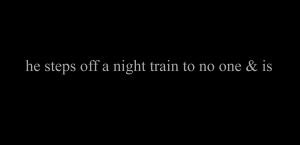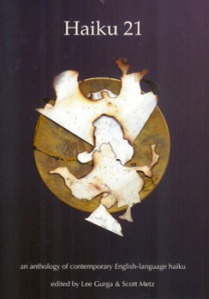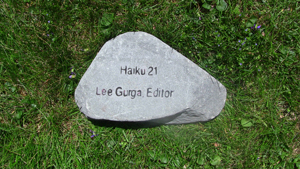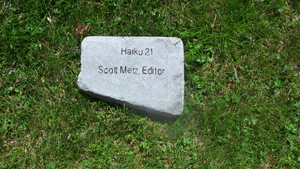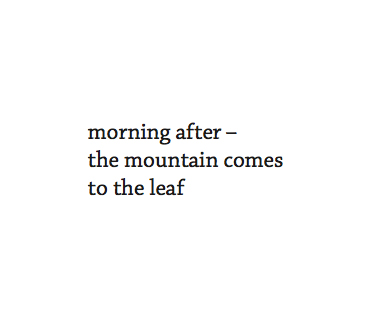On National Haiku Poetry Day (April 17th; 17 syllables, get it?), The Haiku Foundation announced the winners for their Touchstone Awards for Individual Poems in 2011, as well as for their Touchstone Distinguished Book Awards for 2011, and also the winners of their 2012 HaikuNow! contest.
Lots going down.
No winners from R’r were selected for the Touchstone Awards for Individual Poems this year, but two ku that appeared in R’r in 2011 made their Shortlist. One was the following by Chris Gordon, from R’r 11.1:

And one of my own, also from R’r 11.1:

These were two, from the 30, i submitted for the contest (having been invited by THF, as editor of R’r, to submit 10 from each issue we published in 2011). Hope to share all of those sometime soon.
Two ku that i’ve shared on this blog as favorites of mine from other journals in 2011 got top honors however (out of 6 total):
gunshot
every pine needle
pointing at something
Gregory Hopkins
/ The Heron’s Nest (Volume 13:2, June 2011)
&
back from the war
all his doors
swollen shut
Bill Pauly
/ Modern Haiku (42.1)
Also, as an individual, i was able to submit two of my favorites from other journals for the contest.
One of the two i submitted was Bill Pauly’s ku above.
i like this one so much because it can be read in different ways, and those readings (from the hyper-literal to the symbolic/metaphorical), for me, can be held in the mind simultaneously, and have, i feel, great depth, and far-reaching implications about the human psyche, war, society/culture, Nature, and the world. The words chosen are perfect—nothing’s wasted—and the line breaks are steel-solid. All around, a great and highly memorable poem.
The other of the two i submitted was Lee Gurga’s
the scent of paradise a dead bird in my hand
from Modern Haiku 42.2.
Here the abstract and the concrete are oddly and jarringly grafted on to one another to create a world i never encountered before, yet somehow feel i should’ve (or, actually, that i have, but didn’t realize it until reading Lee’s poem). The balance of release and lifelessness, sadness/aloneness and magnificence, invisibility and concreteness (yet invitation: what kind of bird? what colors?, etc.), the implication of death equaling life/new life, and vice versa, and the intense intimacy and physicality of the bird in hand (flight ceased, flight caught, flight realized and felt)—it is all so mesmerizing. Here the taxonomical naming of the bird would only impede and ruin the entire poem, like it does so often in English-language haiku. The one line construction is perfect and heightens the reading experience.
—
In the weeks ahead here, Paul Pfleuger, Jr. will be sharing his favorites that appeared in R’r in 2011 with some commentary and lingering questions; & i’ll continue to throw up more of my favs from other journals in 2011. And amongst all of that, the new issue of R’r (12.1) will be completed and unveiled.
—













